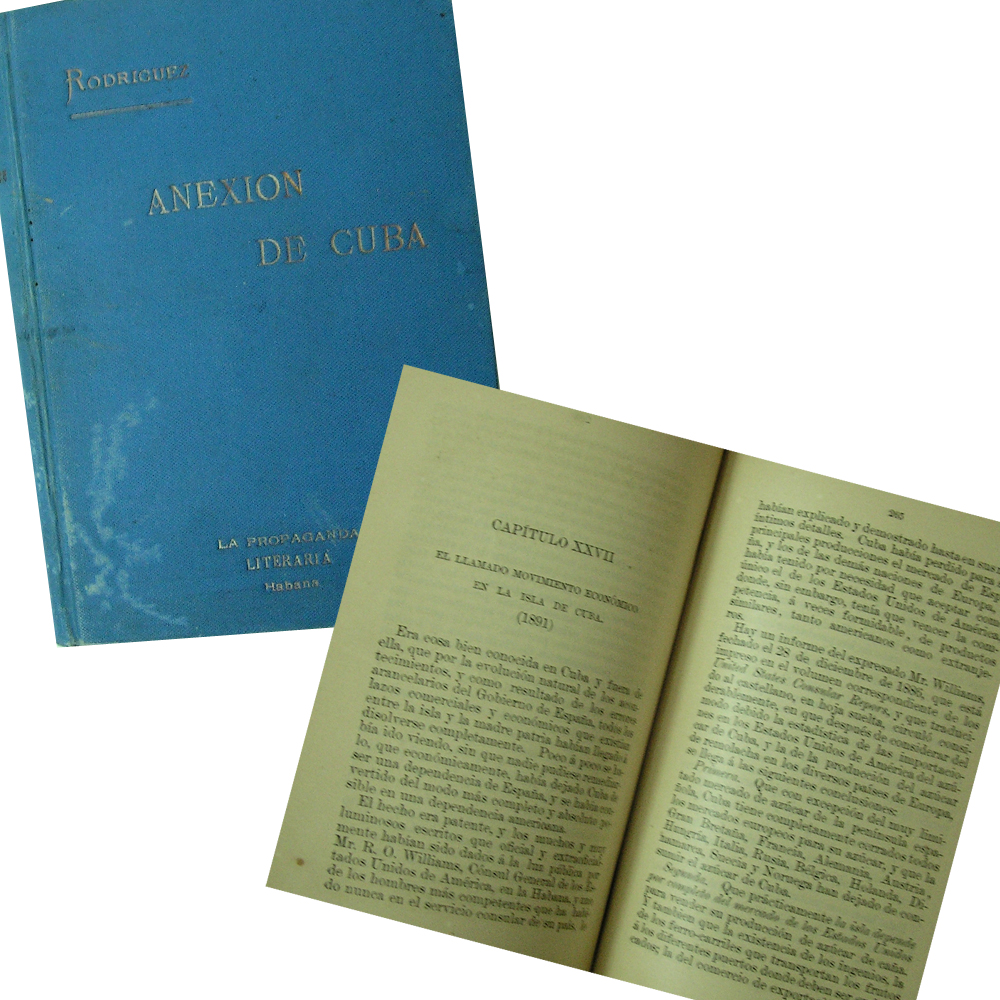3.6.2 Historical criticism, biographical genre and journalism of José Ignacio Rodríguez y Hernández (1831 – 1907)

José Ignacio Rodríguez was a staunch supporter of annexation to the United States, which he championed in his dealings with the U.S. government, as well as in his theoretical and philosophical endeavors. Despite this reactionary ideological stance, which has led to his research being overlooked, he was known for his well-documented studies, which are of interest, at least for understanding the ideological landscape within which Cuba developed at that time.
A graduate of Philosophy and Civil and Canon Law from the University of Havana, he emigrated to the United States in 1869, following the revolutionary outbreak of the previous year, with which he was allegedly linked. He acquired American citizenship and even served as an Advisor to the United States Department of State, serving on the Commission that negotiated the Treaty of Paris.
Already in Cuba, in 1864, he had published, together with Anselmo Suárez y Romero, “Ofrenda al bazar de la Real Casa de Beneficencia,” which included works by Cuban authors; but most of his cultural and ideological formation took place in the United States, and he remained there until his death. The dependent republican model established in 1902 also did not correspond to the annexation criteria he had adopted.
Following the North American intervention in the war waged by the Mambises against Spanish troops, he began writing a text entitled: “Historical Study on the Origin, Development and Practical Manifestations of the Idea of the Annexation of the Island of Cuba to the United States of America.” This text culminated in 1900. In it, he traced the origins of the annexationist aspirations and described the attempts made by both the northern powers and some, admittedly, minority groups on the island.
The text is perfectly documented and truly reflects a rigorous historical investigation; although some data and facts are interpreted to justify the author’s own thesis, the analytical approaches seem preconceived—probably unconsciously—to justify the ideological position José Ignacio Rodríguez firmly adheres to.
The author’s biographical texts—”Life of Don José de la Luz y Caballero,” “Life of Priest Don Félix Varela,” and “Life of Doctor José Manuel Mestre”—are characterized by the use of numerous documentary sources and the meticulous collation of data, but from an externalist perspective that does not delve into the real person beyond documents and testimonies. His biographical texts also suffer from biased interpretations, based on which important figures of ideological significance are reduced to the author’s preconceived notion.
His journalistic work, steeped in the ideological principles he embraced, included publications in both Cuba and North America, as well as Latin American countries, not only from a literary perspective but also from a legal and historical perspective. These publications include: Revista de Jurisprudencia, Revista de Cuba, and El Monitor Republicano (Mexico).








